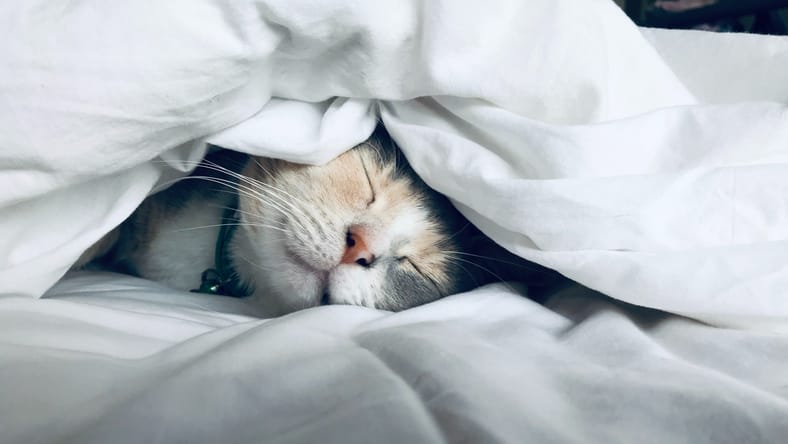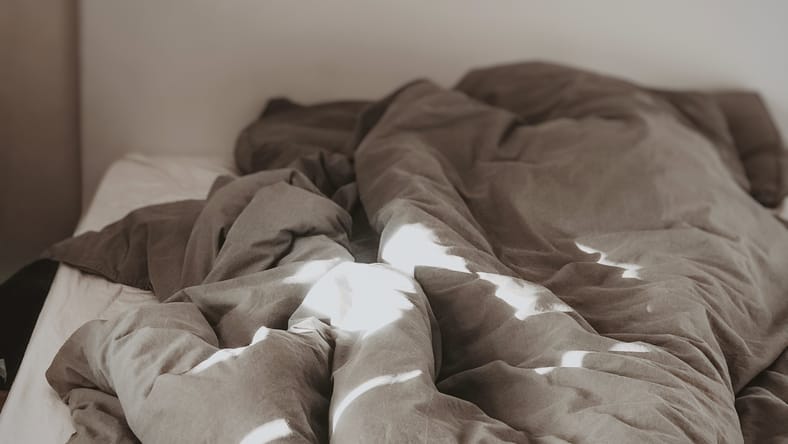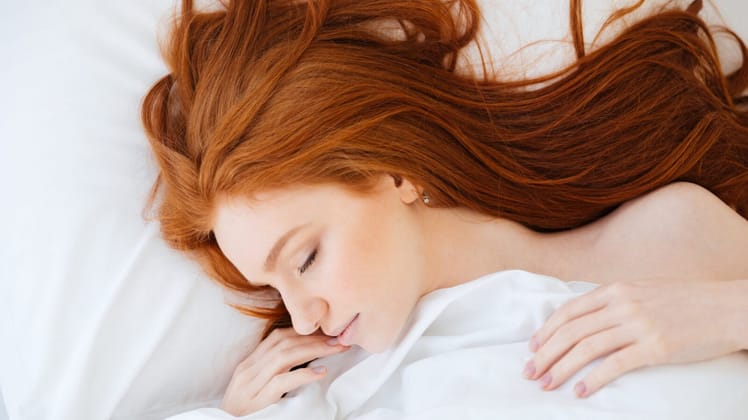Sleep is easily one of the most important factors when it comes to your overall health. Sadly, millions of people have trouble sleeping, and more-often than not, they have no idea why.
Some of the reasons for sleeping troubles are obvious. From poor diet, to terrible bedtime routines and zero physical activity during daylight. Not to mention bombarding your body with sugar and caffeine late in the day (a common problem).
However, there are many less obvious reasons that could be causing your sleepless nights, some may just surprise you. Here are six things to consider addressing if you have trouble sleeping:
1. Sleeping next to pets

If you have pets, such as dogs and cats, chances are you allow them to cuddle up next to you in your bed at night. While comfortably snuggling with your furry friends is known to reduce stress and anxiety, it doesn’t always lead to a good night’s sleep.
Let us take the example of cats. Cats have different sleep-wake cycles than humans, so allowing them to sleep on your bed might wake you up at odd hours. Studies show that cats can be as disruptive to sleep as humans sharing a bed. Consider cuddling your pets only during daylight hours, and train them not to enter your bed when you call it a night.
2. Being on medication

Chemicals potentially have a profound effect on your sleep-wake cycle. Regardless of whether you’re reaching into your medicine cabinet to treat the common cold or to take your daily anti-hypertension pill, it is important to be aware that certain medications could lead to having trouble sleeping.
Certain medications could be causing your difficulty in sleeping, if you are on medication and have trouble drifting off, speak with your doctor as they may be able to provide solutions.
3. Sleeping on an old mattress

If you have tried several remedies and still cannot find the reason why you can’t sleep through the night, it might be time to look into your mattress or pillow. An old mattress is unable to support your body weight and over time, it wears on the pressure points of your body. Consequently, the blood flow to one side of your body could decrease, causing discomfort in sleep. This creates aches and fatigue the next morning. The same is true for your pillows, some of which can cause jaw and neck problems.
A study on elderly people revealed that those who slept on uncomfortable mattresses experienced higher levels of insomnia. Regardless of your age, your mattress should be neither too firm nor too soft for an ideal night’s rest. Choose wisely when you purchase your next mattress.
4. Dealing with allergies

Nasal allergies affect almost everyone and can definitely lead to trouble sleeping for both children and adults. Apart from seasonal variations, allergies caused by indoor dust mites and air pollution might also keep you up, as per Allergy, Asthma & Clinical Immunology research.
To reduce allergies, it’s recommended to keep windows closed and remove pollen from your clothes and hair. Although antihistamines could help you combat allergies, they have other side effects. Other ways to prevent allergies are to clean your bed often and take a quick, warm shower before bedtime.
5. Drinking a nightcap

Although a glass of wine or nightcap may help you doze off faster, according to the National Sleep Foundation, it can cause wake-ups later in the night as your body metabolizes the alcohol, inhibiting restorative sleep. It can also cause your body temperature to rise, leading to vivid dreams or sleep terrors, aggravating breathing problems, and resulting in restless legs, all of which contribute to poor quality of sleep.
6. Living near a busy street

This one might be obvious, but living near busy urban streets, especially if very loud outside, can cause problems sleeping. The busier (and louder) the neighbourhood the worst this can be, and greater the hindrance to peaceful slumber.
It gets worse if you live by a road where vehicles drive through the night, as revealed by a World Health Organization (WHO) study. Noise from a busy street could be a major sleep disruptor. If moving is not an option, try to use sleeping aids like earplugs and white noise machines to keep the noise at bay.
